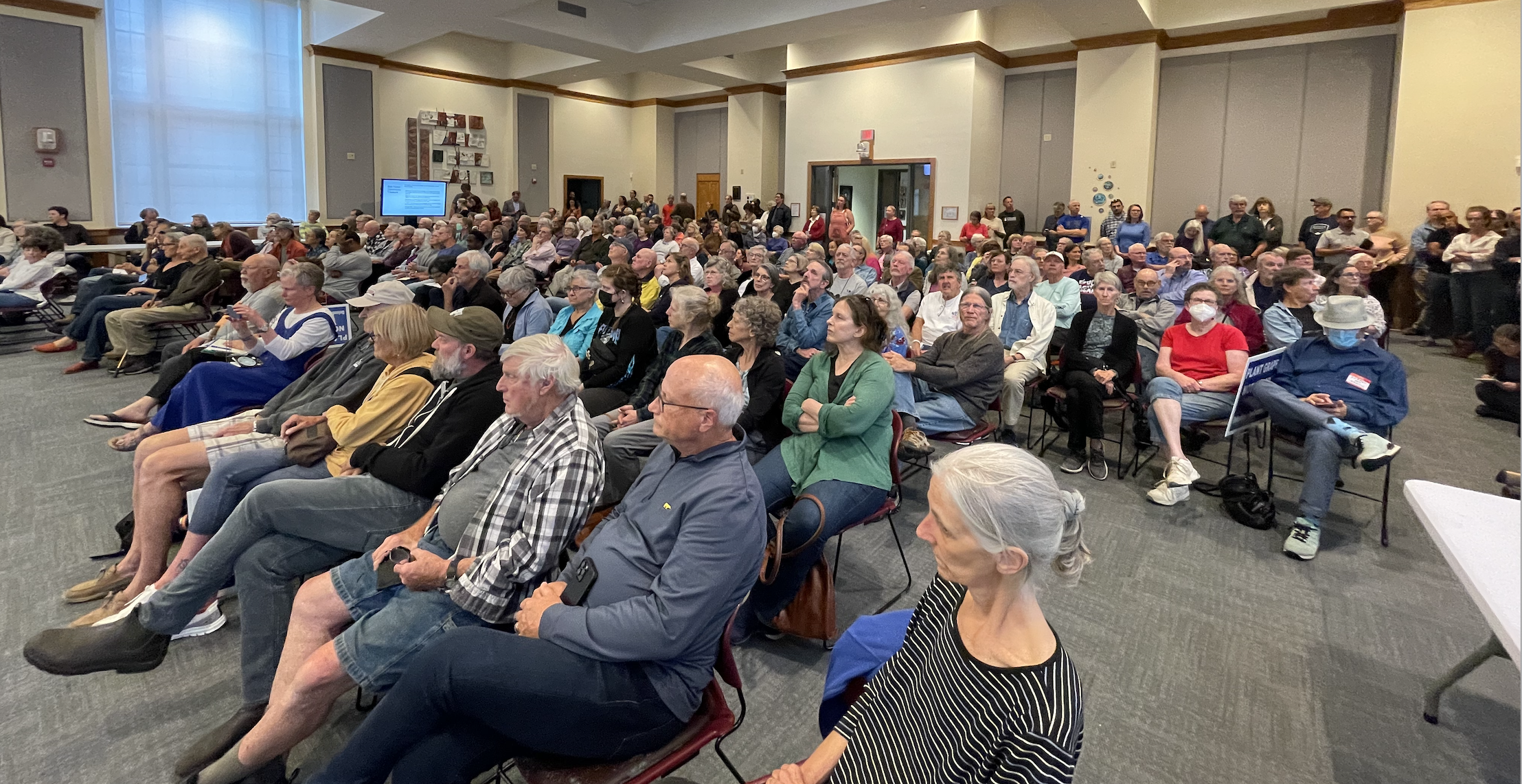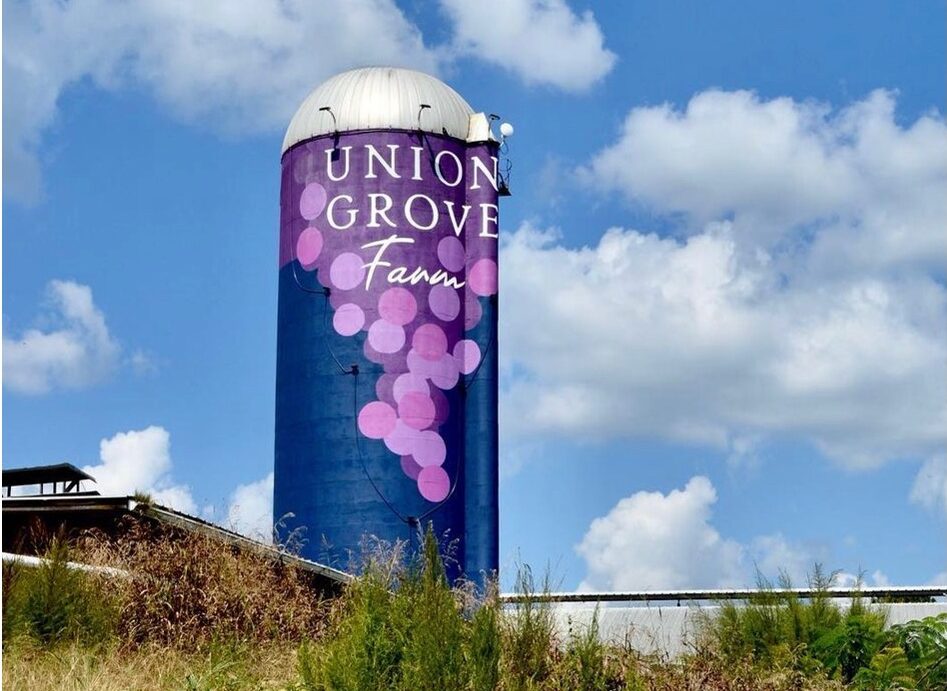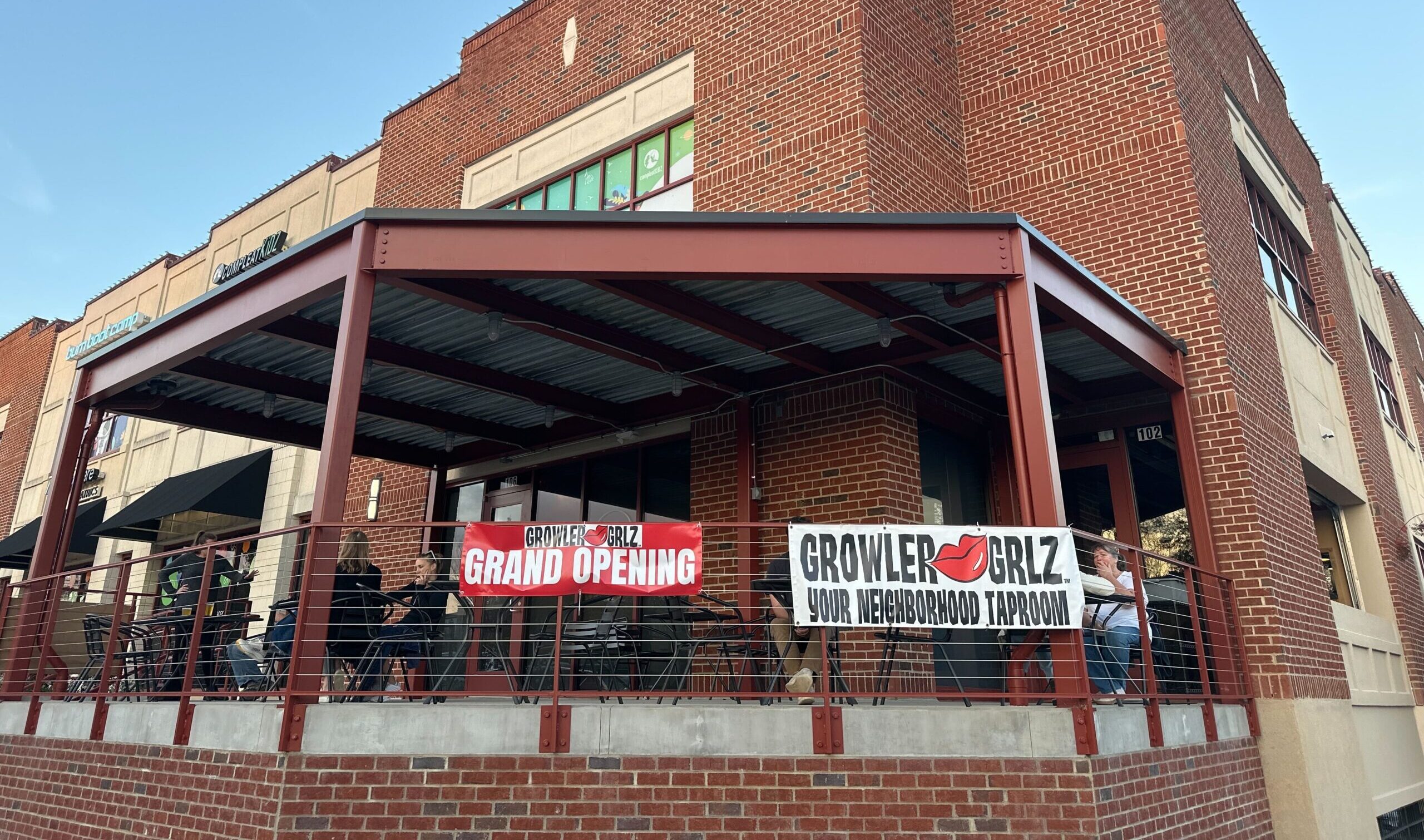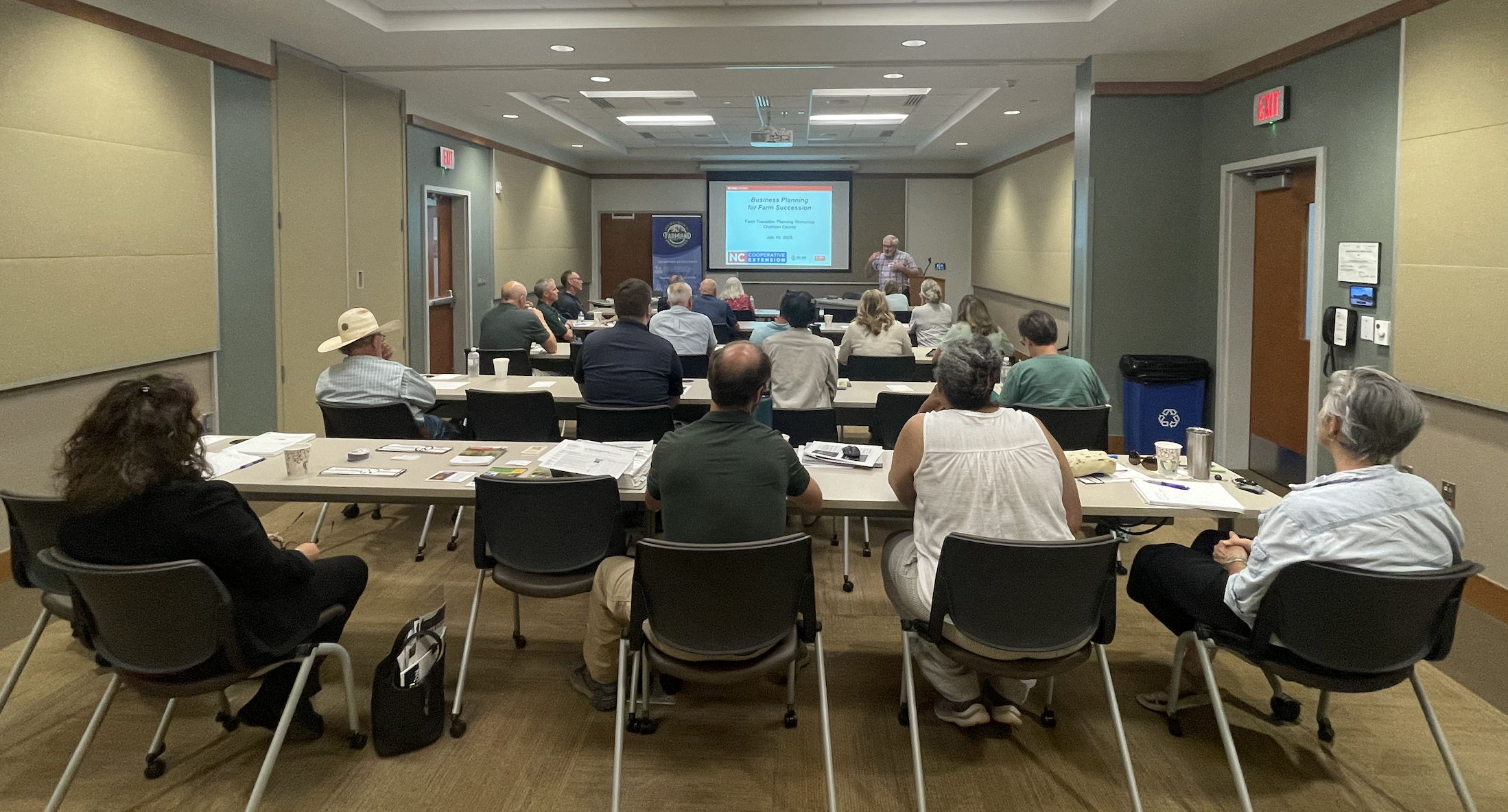Editor’s Note: This story has been updated to reflect the Orange County Planning Department’s “Final and Binding Determination” letter on Union Grove Farm’s various project elements shared on Wednesday, as well as a statement from Union Grove Farm shared on Friday.
More than two hundred people crowded into the meeting room of the Whitted Building in Hillsborough on May 28 for a community meeting on the future of the property that once was Maple View Farm. Throughout the event, the crowd cheered and applauded emphatically as speakers voiced opposition toward Union Grove Farm and its majority owner, Greg Bohlen, for his plans to further commercialize the land.
A well-known landmark of rural Orange County, Maple View Farm was run by the husband-and-wife pair Bob and Chris Nutter for more than 50 years before their deaths in 2019 and 2015, respectively. The Nutters granted the Triangle Land Conservancy a conservation easement over the farm in 1995, which prohibits the construction of new buildings and structures in the designated area that aren’t for the sole purpose of agriculture. Union Grove’s acquisition of the farm in 2022 was subject to this easement. Since buying the land, Bohlen has established a vineyard on the property and has committed to the goal of regenerative agriculture, even opening a Center for Regenerative Agriculture to educate visitors on the benefits of these practices.
The area is also within the Orange County Rural Buffer zoning district, which prohibits most commercial and industrial activities in order to preserve locations for rural residential development and agricultural uses. While state law exempts farm-related activities from county zoning rules, this does not apply to non-farm-related land uses even if they’re taking place on farmland. Agritourism activities only qualify for the exemption if the farm setting is essential to the activity, rather than just being incidental.
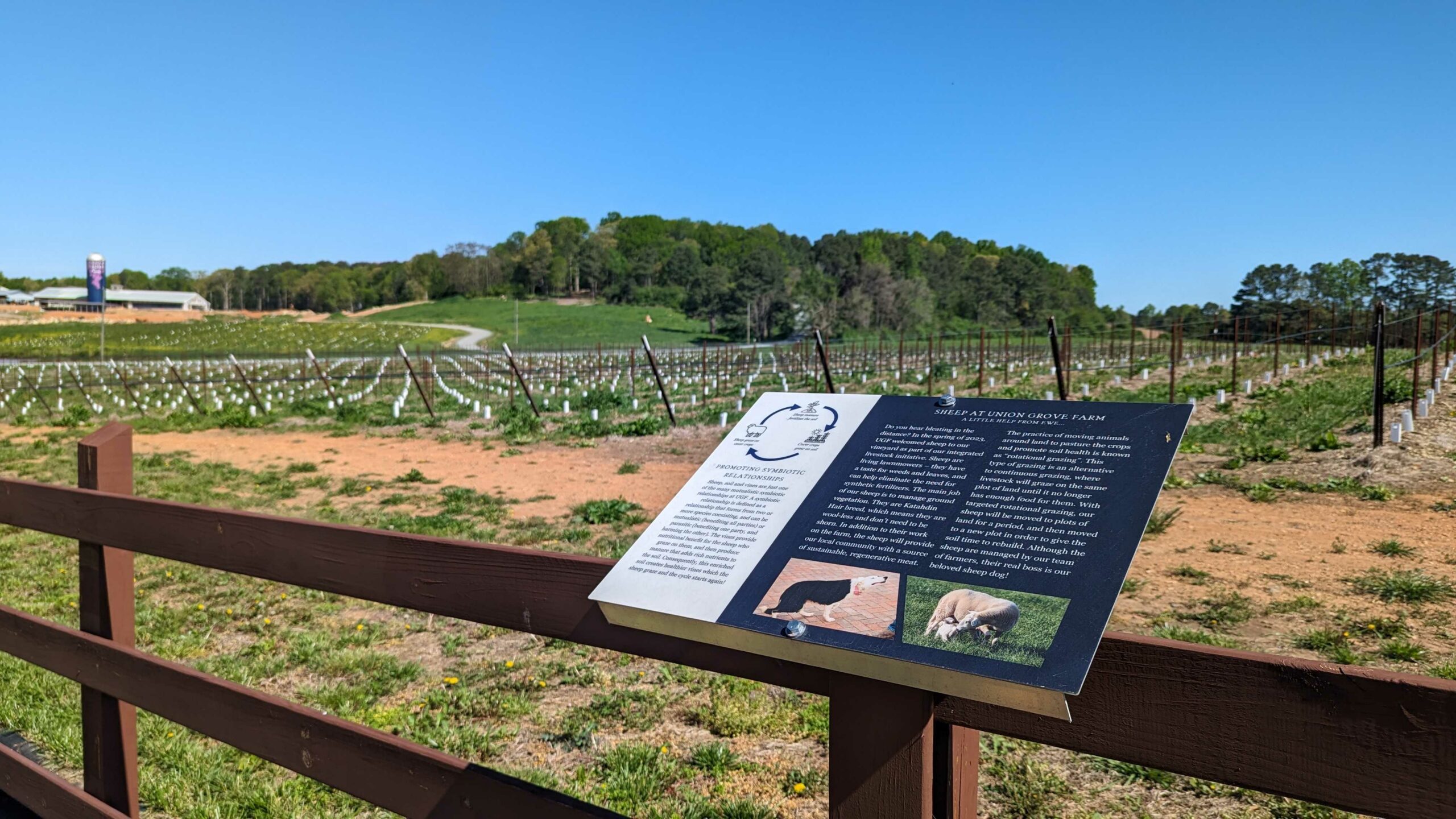
While Maple View was known for its dairy products and cow pastures, Greg Bohlen has put down miles of vineyards and is using sheep to help cultivate the land for farming. This plaque, as seen by one of the farm’s fields in April 2024, is an example of how the farm is promoting its regenerative agriculture approach. (Photo by Brighton McConnell/Chapel Hill Media Group.)
The community group Defend Maple View Farm aims to stop Bohlen’s further development plans, which they feel could ruin the local character. A GoFundMe fundraiser started by the group in order to pay for legal representation at the eventual planning board hearing has raised nearly $13,000. The cause was also amplified by Friends of Bolin Creek, a local group that works to protect and educate on the local environment. In its efforts to conserve natural areas, the group generally opposes development.
Derb Carter — an attorney with the Southern Environmental Law Center who owns a nearby farm and who grew up as a neighbor of the Nutters — laid out the specific requests of the group regarding the county government’s consideration of the development plans.
“We hope that the Planning Department, the Board of Adjustments, and the county commissioners stand behind the rural buffer zoning that was put in place for this area and this region, and that we think has served it well for the last 40 years,” he said. “We hope they continue to protect the agricultural uses that it promotes in that area, along with the low-density residential development that has occurred. We hope they don’t undermine Triangle Land Conservancy’s efforts to actually protect agricultural uses that have occurred on Maple View Farm and implement the wishes of the Nutter family.”
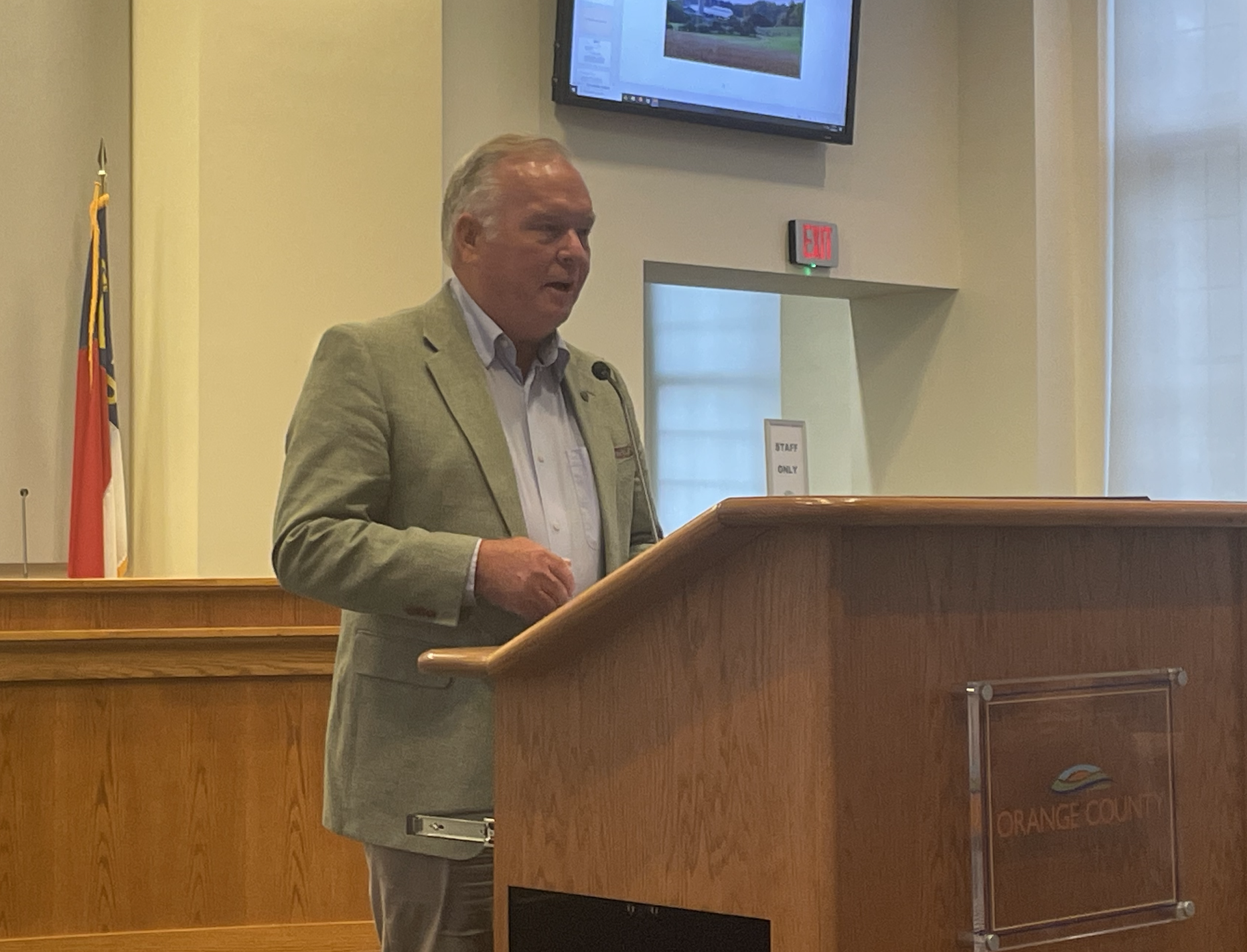
Dirk Carter, who grew up as a neighbor of the Nutters, spoke at the meeting in Hillsborough.
In its development plans, Union Grove tried to qualify several ideas as agritourism, though many in the community disagree with the categorization and feel the plans are fundamentally counter to the rural setting of the area.
One of the main complaints of the speakers was that the Orange County planning director issued an advisory statement in November saying that a proposed 2,500-seat amphitheater would qualify as agritourism despite having previously issued an advisory statement saying the opposite eight months earlier. Carter noted in his speech that nothing had changed about the proposal, and hinted at some suspicion as to the reasons behind this unexplained reversal.
“We hope they adhere to proper procedures in how they take this forward and the decision they make regarding the request and the renewed request that has been made,” he said. “We fully recognize that the county has to consider the state law related to bona fide farm activities and agritourism, but we hope they don’t fall for how things are named and get played and gamed.”
Other controversial parts of the proposal were a regenerative distillery, ten casitas, and a 40-room hotel with a restaurant. Carter said he felt it was laughable the extent to which Union Grove has tried to categorize every idea as agritourism, and explained that one of the hallmarks of this category is generally having the same types of liabilities as regular farming practices.
“There’s a real attempt to try to qualify everything as somehow farm-related,” he said. “The hotel is a ‘farm stay.’ A 40-room hotel, some of the neighbors are calling it a Hyatt occasionally, but in the submittal it’s a ‘farm stay.’ The amphitheater, in the latest submittal, has become a ‘farm stage’ instead of a 2,500-seat amphitheater. I’ll just pose the question of whether a 2,500-seat amphitheater next to a distillery with a bar at night on country roads has the same liability as growing grapes.”
Susan Walser, a representative of Defend Maple View Farm, made a more visceral appeal to highlight the frustration of the community around Union Grove’s vision for the farm land.
“Imagine purchasing or building your home knowing that the Nutters placed a forever farming easement on the land that your property abuts and thinking that your forever home will be a quiet space listening to cows mooing in the background with birds singing over the ponds,” she said. “Now imagine waking up to years of endless moving equipment preparing illegal roads, illegal amphitheaters. Then imagine if an approval goes through and you are listening to concerts, crowds, and traffic all the time. A frustrating and disturbing proposition that none of us would want to be in.”
Of the attendees who commented during the ensuing Q&A session, nearly all voiced disapproval of the Union Grove development plans with varying degrees of anger. One exception was Ann Shy, a Carrboro attorney whose family has lived and farmed in the area for 45 years. She defended Bohlen, whom she knows personally, and advocated for dialogue and compromise.
“I know Greg, this wealthy ‘monster’ that is being demonized. He’s a really awesome human being. I’m in support of this, but I hear all the injury and insult in the room, and I believe it,” Shy said. “Where can there be more dialogue? I came here to listen closely and I want more dialogue.”
Amy Cannon, a daughter of the Nutters, also stood up and spoke as an attendee. A mention of her parents drew immediate applause from the crowd as, referencing their memory, she emotionally thanked everyone who was working to preserve the character of the farm.
“I know many of you have heard him say this on the front porch, ‘I’m so glad that people can sit on this front porch and see it just as it is,’” she said, talking about her father. “This has broken my heart. I live just off the property. And my question is, is the law going to prevail or is the money?”
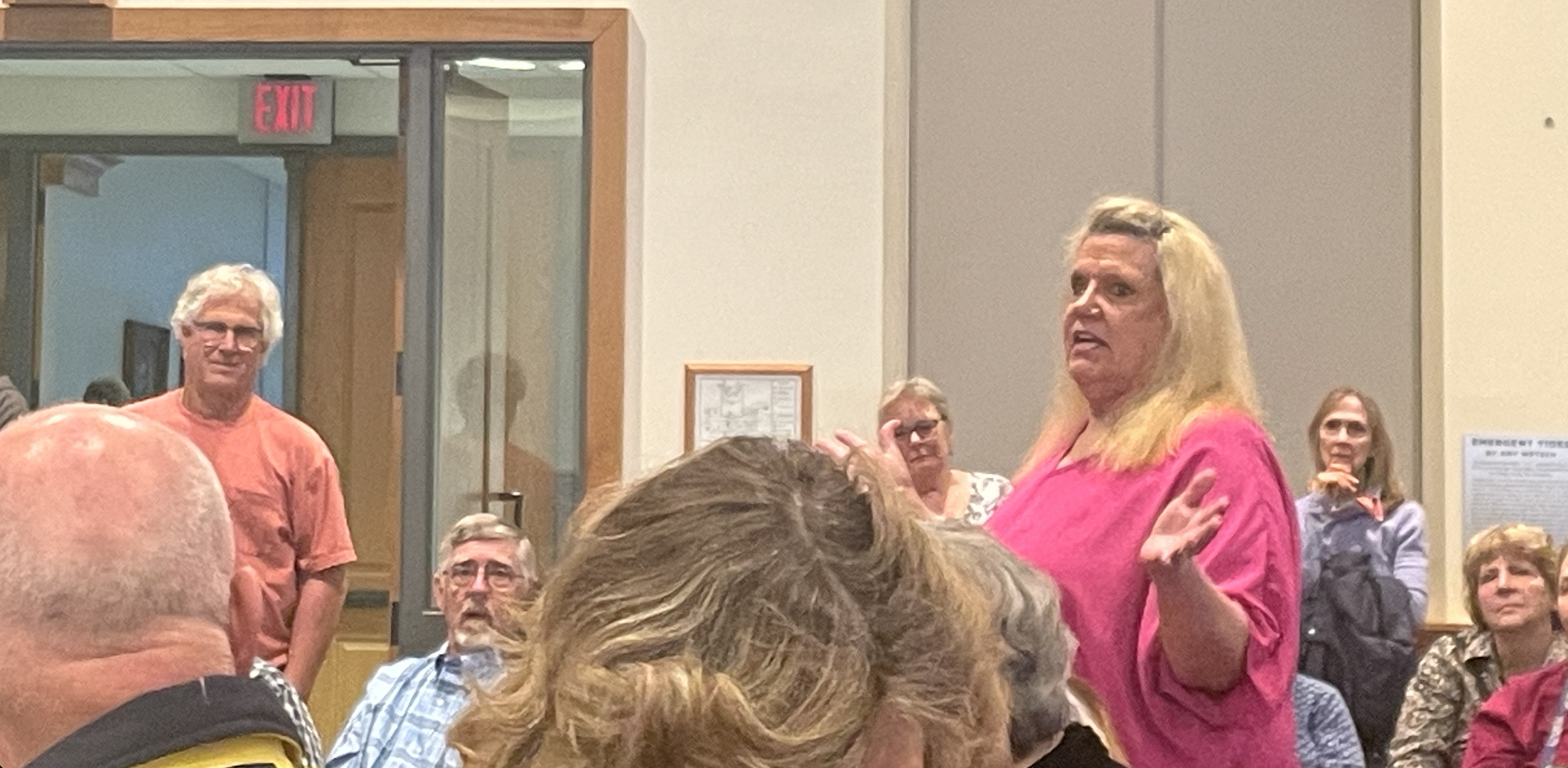
Amy Cannon, a daughter of the Nutters, expressed heartbreak over the development plans and emotionally thanked all those who are helping to oppose them.
On Wednesday, June 4, the Orange County Planning and Inspections Director Cy Stober sent a “Final and Binding Determination” letter to Union Grove Farm’s representatives on the project proposals. While the distillery and a culinary garden were deemed to have “bona fide farm purpose,” the local government said its zoning regulations would not permit the amphitheater nor any hotel and cottages because they lacked the same “farm purpose” needed to qualify for agritourism. The letter can be read in full here.
Union Grove Farm can appeal the planning department’s ruling or apply for a zoning amendment for the projects that did not qualify under agritourism. In a statement shared Friday with Chapelboro, Bohlen indicated the farm is exploring its options for continuing with those elements of the farm — while appreciating the clarity from the county on the other agritourism amenities.
“The approval to add a culinary garden and regenerative distillery and continue our plans for the Center for Regenerative Agriculture will create opportunities to educate the public on the importance of regenerative agriculture to restore ecological balance, combat climate change, improve food security and build more resilient agricultural systems,” said Bohlen. “The proposed farm stage and on-site farm stays remain essential to fully realizing our mission. We are evaluating next steps and options as we seek approval for those components of our plan.
“We are dedicated,” the Union Grove Farm owner added, “to growing sustainable agriculture in Orange County while building a world-class educational experience at the third-largest vineyard in North Carolina — the first certified Regenified table grape vineyard in the United States. We are proud to be part of the community working to protect and preserve precious farmland.”
Featured photo by Ben Crosbie/Chapel Hill Media Group.
Chapelboro.com does not charge subscription fees, and you can directly support our efforts in local journalism here. Want more of what you see on Chapelboro? Let us bring free local news and community information to you by signing up for our newsletter.

